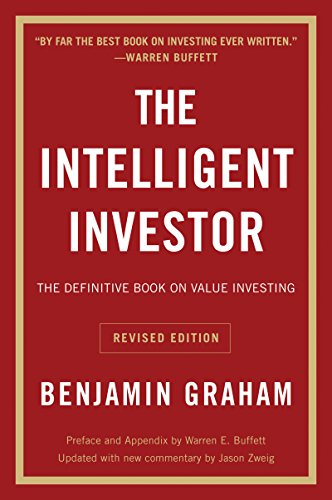Do you want to break into the alternative investment market, but aren’t sure if you should take the leap? Are you a little vague on the details?
Hopefully, this will clear out those cobwebs and make way for you to find the best investment you can!

The intelligent investor
by Benjamin graham
⏱ 12 minutes reading time
🎧 Audio version available
What is the Alternative Investment Market?
First off, let’s define what the alternative investment market is in the first place. This particular market is packed full of opportunities– and whether you see that as a pro or a con, you can’t argue that diversity is nice. The alternative investment market’s definition is that it’s basically anything except the traditional, public investment, like stocks and bonds.
When someone talks about the alternative investment market, they’ll probably mention obvious financial assets, such as hedge funds and private equity, but there is a lot more to it.
So, the term “alternative assets” covers nearly everything you can invest in, from startup companies to outlandish collectibles such as antiques or Pokémon cards if you want.
It’s Less Regulated
The second fact about the alternative investment market is that it lacks the usual regulation most are used to. These sorts of investments don’t have to deal with the same level or intensity of regulatory scrutiny that a popular investment type goes through.
So, keep in mind that there is less regulatory oversight, and thus, the potential for risk is infinitely higher.
It’s Illiquid
And then we have this next fact. A major downside to alternative assets is that they’re illiquid, meaning that you won’t find it particularly easy to sell them or turn them into cash.
For example, something like private capital investments needs 7 to 10 commitments or so? And what about hedge funds? They often have restrictions that don’t allow investors to redeem their money after the investment or at least provide redemption, but at a discounted price. In a nutshell, you’re not likely to find a secondary market for these alternative investments.
There is A Lot Less Transparency
Let’s tackle one of the biggest disadvantages of alternative investments: the lack of transparency.
Since these investments are not traded on a public market, there is a lot less transparency around pricing. For example, at any given point, you can hop online and see how a company– like Amazon, for example– is doing, stock-wise. The same doesn’t apply to alternative investments; the fact that they usually aren’t affected by traditional market values is a double-edged sword.
But there is good news! While it may never be one hundred percent transparent, it’s come a long way. Alternative investing is becoming more mainstream, and all that attention has shed light on the flaws of the system’s lack of transparency. For now, you’ll have to trust whoever you’re investing with.
You Have Options in Real Estate
If flipping houses isn’t your thing, that’s okay! In fact, in the case of the alternative investment market, when there’s a will, there’s a way. One of the best ways to tackle a risky investment is to start with a low-key option.
And one of the real estate market’s lower-risk options is providing a private mortgage. This could potentially have incredible yields. What you’re doing is basically giving a real estate owner a loan over a one to five year long contract. Whatever you do, the risk is relatively low; loans are no more than 60 to 70% of the market value of the property in question.
You Can Invest in Farms
Before you start exploring the market, it’s important to know your options. If you’re the patient type and are willing to wait to profit off a long-term project– five or more years– then consider looking into investing in a farm.
This unique alternative investment has a lot of options inside it. If owning a farm on your own doesn’t appeal to you, you can also just as easily lease or sharecrop the farmland. Of course, it goes without saying that you’ll need a lot of patience in a project that takes so long to really get started. You’ll also need to consult with an expert who specializes in farm and ranch properties.
You May Already Be an Investor
Here is one of the more unconventional investments– collectibles. That Pokémon joke earlier had some truth to it. All kinds of collectibles and artwork are incredible alternative assets that, while requiring knowledge and patience, are a satisfying investment. Why? Because their value may wildly increase over time.
Collectibles are items like vintage cars, vintage baseball cards, and even rare wine bottles. You purchase the physical item and maintain it until its value doubles and triples over time.
However, collectibles and artwork are on the riskier side of things. You can’t tell what will happen to the item 20, 30, or 50 years from now. They can be destroyed or get damaged, and since they’re very illiquid, they may easily lose their value.
Is Private Equity Right For You?
The term “private equity” can cover a lot of ground. It refers to capital investment made into companies that aren’t listed on a public exchange or private companies. If you’re on the fence about where to focus, here’s a brief breakdown!
The subsets of private equity include venture capital, which specializes in startups and very early-stage ventures. Then you have growth capital, which focuses on helping companies past the startup phase expand. Or you have buyout, which speaks for itself– it’s when a company or a division is bought outright.
A private equity company provides benefits like mentorship, talent sourcing assistance, and industry expertise to the firms it’s invested in.
You Can Invest in Commodities
It’s not all hedge funds and invaluable artwork. What’s so great about the alternative investment market is how flexible it is in terms of choices. One of these choices is investing in natural resources, such as oil, precious metal, natural gas, and different types of agricultural products.
Why are commodities considered such valuable assets? Because they aren’t affected by the public equity markets, meaning that they’re basically a hedge against inflation. And their value increases and decreases with supply and demand, also meaning that investors can profit off higher prices.
You Avoid the Public Market’s Volatility
Another thing that’s important to know about this market is that alternative investments are a lot more complex than traditional ones. While oftentimes, they have higher fees, higher returns, and higher risk, there is a unique advantage to them.
The complex part is this: if we were talking about a traditional public investment, then it’s known that the share price fluctuates depending on various factors. However, since a private investment’s shares aren’t publicly traded, that volatility doesn’t affect you.
They Jazz Up Your Portfolio
A reason why so many people prefer alternative investments is because they greatly enhance their portfolios. By focusing on an alternative market, they’re able to add and boost diversification. Alternatives also help achieve financial objectives by providing numerous opportunities.
You Have Direct Ownership
If you’re dealing with public investment, then you’re pouring your money into what is essentially a paper asset — and a volatile one at that. At the end of the day, you don’t have direct ownership over anything.
However, in alternative investments such as collectibles or artwork, you have direct ownership of the items. The same goes for real estate; if you buy a rental property, you own it. Even with a mortgage, if you buy a mortgage note, you still have a lien– which is the right to keep possession of property belonging to another person until a debt owed by that person is paid- against a property.
Are You Suitable for It?
Lastly, our most important piece of advice is just how suitable you are for this market. Investors who tend to thrive in the alternative investment market include:
Number one: the active investor. These are the investors who aren’t afraid to be active, to put in the work, and to take chances on all sorts of industries.
Passive investors also enjoy the alternative investment market because some alternative investments, such as private equity, mortgages, and collectibles, while providing great profits, don’t require much time to manage.
Retired investors and income-focused investors also do well because alternative investments provide the right type of low-volatility sources of income. Here, private equity funds, real estate funds, and private REITs are preferable.
Are you one of these types?
What Is Snapreads?

With the Snapreads app, you get the key insights from the best nonfiction books in minutes, not hours or days. Our experts transform these books into quick, memorable, easy-to-understand insights you can read when you have the time or listen to them on the go.


